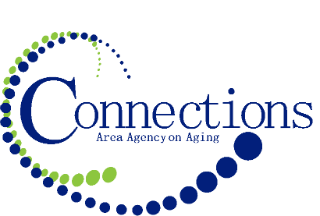Iowa SMP Monthly Newsletter Article
Scam Artists Don’t Take the Holidays Off!
There’s no shortage of scam reports coming into the Senior Medicare Patrol office at HVAAA. Here’s the holiday “buffet” line of scams!
1.Telephone caller introduced themselves as representing a well known large insurance company and told the senior that there were errors in the 2011 “Medicare and You” handbook. The caller said that Medicare asked them to visit seniors at home to inform them of the correct information.
2.Telephone caller offered a mortgage rescue loan for four monthly installment payments. They described many intricate details and faxed paperwork back and forth, attempting to demonstrate they run a legitimate business.
Here is the REAL story that scam artists hide so well.
1.Medicare does not send anyone to your home to inform you about your Medicare benefits. This fraudster was exploiting the name of a prominent insurance company and trying to frighten the senior about the security of his/her Medicare benefits. If you have questions about what Medicare covers, read your “Medicare and You’ handbook (mailed this fall to you), call the toll-free Medicare information line at 1-800-933-4227, or ask your doctor.
2.The caller about a rescue loan was very sympathetic to the senior’s concerns about affording their mortgage payment and appeared to give special considerations for his/her limited income by arranging an easy payment plan for special “fees.” If you want to learn whether you can receive mortgage refinancing assistance you should contact the federal government’s “Making Home Affordable” program; phone 1-888-995-4673 (TTY 1-877-304-9709), or the website at www.MakingHomeAffordable.gov You may also contact Iowa’s own mortgage assistance program, “Iowa Mortgage Help” at 1-877-622-4866 or www.IowaMortgageHelp.com.
Any of us can fall victim to a skilled scam artist. But we can make choices that will help protect ourselves. It’s similar to changing our habits to protect our health – like carefully choosing what we eat and coaxing ourselves to exercise more. We can change some of the habits we follow when we answer the phone or a knock at our door.
The unexpected caller or visitor who tells you they have some information or product that seems to answer your prayers ------ that’s the signal for you to look past the kind voice and the offer of help. Scam artists know retired people are concerned about having enough income to pay their bills, concerned about being able to afford the health care they need, and may not have as much support from family and friends as they would like. They will try to scam you by exploiting your worries.
Researchers at the Wayne State University Institute of Gerontology recently presented research results to the Gerontological Society of America annual meeting which described that loneliness and feelings of being unappreciated can lead to seniors become more vulnerable to skillful scam artists.
During this holiday season, please protect yourself from scams. And when you are making a list to mail holiday cards or marking your calendar for the holiday events you’ll attend ……. Make a list of your friends and acquaintances you think may be feeling lonely during this season and then give each one a call, send them a note in the mail or visit them. When you do so, tell them what you know about avoiding scams, as your holiday gift to them. Best wishes for the new year.
Deb Yankey, Iowa SMP Coordinator
P.S. Remember to call Senior Medicare Patrol at 1-800-423-2449 if someone has attempted to scam you; we can share this news with seniors to warn them.











